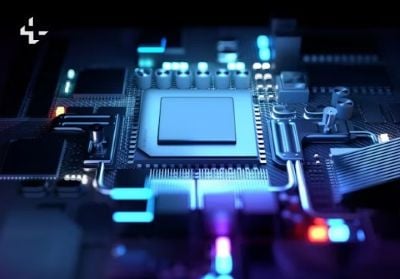
In Malaysia, where everything moves fast, from rush hour traffic to WhatsApp group chats, your smartphone needs to keep up. Whether you’re gaming on the go, scrolling through social media, or juggling multiple apps at once, lag is the last thing you want.
Today’s phone makers are all about boosting speed, and they focus on three key parts: the processor (CPU), RAM, and UFS storage. But what do these mean, and why should you pay attention?
Do you know exactly what makes a smartphone zippy and smooth? We’ll dive into the hot topic of RAM vs processor, and how both work together to give your phone that lightning-fast feel that surely you’ll love.

Editor
Mae An NG chevron_right
Table of Contents
The Processor (CPU) – The brain of your phone

Right now, the hottest processors making waves are Qualcomm’s Snapdragon 8 Gen 3 and Apple’s A17 Pro chip. The Snapdragon 8 Gen 3 packs an upgraded octa-core design with powerful Cortex-X4 cores, perfect for handling intense tasks like gaming or video editing without breaking a sweat. Meanwhile, Apple’s A17 Pro is crafted with a cutting-edge 3nm process, making it super efficient, delivering top-notch speed while saving your battery juice.
Both processors are built to handle modern needs like AI, gaming, and 5G connectivity smoothly. So if you want the fastest phone out there, look for these chips. They’ll definitely give your smartphone that extra edge.
RAM – Multitasking made easy

(image from TechSpot)
Let’s talk about RAM — the unsung hero in your smartphone that keeps everything running smoothly, especially when you’re using multiple apps at once. You might hear people debate “RAM vs processor,” but here’s the deal: both are important, and they work together to give you a lag-free experience.
Think of the processor (CPU) as the brain that handles all the heavy lifting and overall speed. Meanwhile, RAM is like your phone’s short-term memory that holds all the temporary data your phone needs right now so you can switch between apps without a hitch. The more RAM your phone has, the more apps and tasks it can manage without slowing down.
Heading into 2025, smartphones in Malaysia have RAM typically between 8GB to 16GB, and sometimes even more on flagship models. Take the Samsung Galaxy S25 Ultra or the OnePlus 13, for example — both come with up to 16GB RAM. That means you can game hard, switch between social apps, and get work done all at once without a sweat.
But remember, it’s all about balance. Big RAM alone won’t save you if the processor isn’t up to the task. That’s why top-tier phones combine powerful CPUs with plenty of RAM — so you get the best of both worlds, smooth and speedy performance no matter what you’re doing.
UFS – The storage speed factor

Next up is the UFS—Universal Flash Storage—the unsung hero behind your smartphone’s speed, right alongside the CPU and RAM. Think of UFS as your phone’s super-fast storage highway. The faster it is, the quicker your apps launch, files transfer, and everything feels smooth and responsive, especially when handling big files or heavy media.
These days, the latest flagship phones are packing UFS 4.0 and 4.1 tech, pushing speeds up to a whopping 23GB per second for reading and writing data. To put that into perspective, it’s like upgrading from a busy kampung road to a lightning-fast expressway. This means your favorite apps open in a snap, games run silky smooth, and your phone just keeps up with your pace—no more frustrating lag.
But here’s the cherry on top: UFS 4.0 not only boosts speed but also helps save your battery. So you get faster performance without guzzling power like crazy. For smartphone storage, UFS is truly a game-changer that’s making a big difference in everyday use.
RAM vs Processor – Which one affects your phone's speed?
We’ve already talked about CPU, RAM, and UFS storage, but here’s the big question: between RAM and the processor, which one actually makes your phone faster?
Honestly, it’s a bit of a tug-of-war because both are super important. Let’s digest their key points:
Processor: Think of this as your phone’s engine. A powerful processor means your phone can handle tough jobs like gaming on Genshin Impact, editing TikTok videos, or switching between apps without breaking a sweat. The better the chip, like Snapdragon 8 Gen 3 or Apple’s A17 Pro, the smoother everything runs.
RAM: RAM is like your phone’s workspace. The more RAM you have, the more apps you can keep open without your phone getting sluggish. If your phone only has 4GB RAM, opening multiple apps or browsing with many tabs can slow things down big time.
So here’s the deal: the processor sets the performance foundation, while RAM boosts it further. For example, even if you have a beastly Snapdragon 8 Gen 3 but just 4GB RAM, your phone will struggle when multitasking. On the flip side, packing 12GB RAM with a weaker processor won’t magically speed things up.
That’s why premium phones come with both top-tier processors and plenty of RAM, to make sure you get the best of both worlds.
In the end, for a smooth experience on your phone, whether you’re scrolling, gaming, or working, you want a balanced combo of both processor and RAM. Jangan main-main with specs!
Final Thoughts
When you’re shopping for a smartphone today, speed isn’t just about having the fastest chip, it’s all about the perfect mix of processor, RAM, and UFS storage working together. Think of the processor as the heart of your phone, pumping out tasks quickly and efficiently. Meanwhile, RAM lets your phone juggle multiple apps and processes without breaking a sweat. And don’t forget UFS storage, this is what helps your phone access data fast, so apps open instantly and file transfers feel seamless.
You’ll often hear people debate: RAM or processor — which is more important? The truth? Both matter just as much. Even the fastest processor won’t perform well if your RAM can’t keep up. And having heaps of RAM won’t save you if your processor is sluggish. For a smooth, lag-free experience, go for a smartphone that balances a powerful processor, enough RAM, and speedy UFS storage.
So next time you’re shopping for a fast smartphone, remember: it’s not just one thing, but the right combo of these three key parts that makes all the difference.
